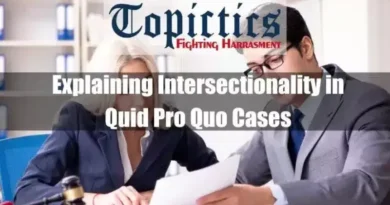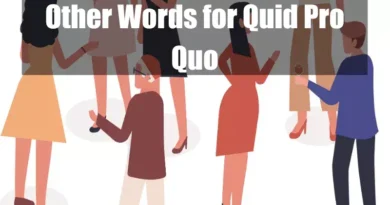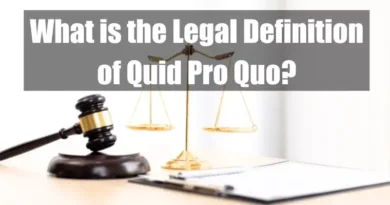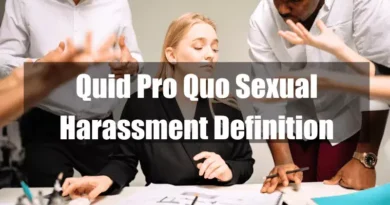Is Quid Pro Quo Illegal In Government?
Quid pro quo itself is not inherently illegal in government; it becomes unlawful when it involves bribery or corruption. For a quid pro quo to be considered illegal in the United States, there must be a clear, explicit exchange where a public official receives something of value in return for performing an official act. This standard was emphasized in the 2024 Supreme Court case Snyder v. United States, where the Court ruled that federal bribery laws apply only to explicit quid pro quo exchanges and do not extend to after-the-fact gratuities given to officials for actions they’ve already taken.
Similarly, the Southern District of New York held that an explicit quid pro quo agreement is essential for prosecuting bribery and fraud charges in campaign fundraising contexts. Without clear evidence of such an agreement, charges may be dismissed.
Therefore, while quid pro quo arrangements are not illegal by themselves, they cross into illegality when they involve bribery or corruption, requiring a clear and explicit exchange between a public official and another party.
Takeaways
| Key Points |
|---|
| Quid pro quo arrangements are illegal in government when they involve a corrupt exchange intended to influence official acts, as defined by two key U.S. federal statutes—18 U.S.C. § 201 and § 666—which criminalize bribery and misuse of federal funds, respectively. |
| The law distinguishes between bribery, which requires corrupt intent and a clear link between something of value and an official act, and illegal gratuities, which reward actions without necessarily influencing them. |
| Courts require explicit quid pro quo agreements to prosecute bribery, as reinforced in United States v. Sun-Diamond Growers, where the Supreme Court ruled that gifts must be tied to specific official acts to be criminal. |
| While campaign contributions are constitutionally protected, they become illegal when given with the explicit expectation of an official favor, a legal standard that is difficult to meet and has led to overturned convictions, such as in the case of former Virginia Governor Bob McDonnell. |
| Although U.S. law focuses on explicit agreements, ethical concerns and international comparisons, such as the UK’s Bribery Act 2010 and global anti-corruption treaties, highlight the need for stronger enforcement and public trust in political integrity. |
Introduction
The term “quid pro quo,” Latin for “something for something,” refers to an exchange where one party provides something of value in return for a reciprocal benefit. In governmental contexts, such exchanges can raise legal and ethical concerns, especially when they involve public officials. While not all quid pro quo arrangements are illegal, they become problematic when they involve bribery or corrupt practices. Understanding the legal framework governing such exchanges is crucial for ensuring transparency and integrity in public service.
Legal Framework
Overview of Relevant Laws
Two primary federal statutes address bribery and related offenses involving public officials: 18 U.S.C. § 201 and 18 U.S.C. § 666.
- 18 U.S.C. § 201: This statute criminalizes the act of offering, giving, receiving, or soliciting anything of value to influence an official act, commit fraud, or induce an official to act unlawfully. It applies to federal public officials and those acting on behalf of the United States government.
- 18 U.S.C. § 666: This provision targets theft or bribery involving programs receiving federal funds. It prohibits agents of organizations or government agencies that receive significant federal funding from embezzling property or accepting bribes in connection with transactions involving $5,000 or more.
Distinction Between Bribery and Gratuities
Under 18 U.S.C. § 201, a clear distinction exists between bribery and illegal gratuities:
- Bribery: Involves a corrupt intent to influence an official act through the exchange of value.
- Illegal Gratuities: Refer to giving something of value as a reward for an official act without necessarily intending to influence that act.
The key difference lies in the intent and timing of the exchange.
Quid Pro Quo in Bribery Cases

Elements Required to Prove Bribery
To establish a bribery offense under federal law, prosecutors must demonstrate:
- A public official solicited, received, or agreed to receive something of value.
- The exchange was made with corrupt intent.
- There was a link between the thing of value and an official act. These elements ensure that only explicit and intentional corrupt exchanges are prosecuted.
Role of Explicit Agreements
Courts have emphasized the necessity of a clear quid pro quo arrangement in bribery cases. This means there must be an explicit understanding that the public official will perform a specific act in exchange for something of value. Ambiguous or implied agreements typically do not meet the threshold for criminal bribery under federal statutes.
Notable Legal Precedents
Analysis of United States v. Sun-Diamond Growers of California
In this 1999 Supreme Court case, Sun-Diamond Growers was charged under 18 U.S.C. § 201(c)(1)(A) for providing gifts to a public official. The Court held that to convict under this statute, the government must prove a link between the gift and a specific official act. Justice Scalia, writing for the Court, emphasized that the statute does not criminalize the giving of gifts without a direct connection to an official act.
Impact of United States v. Sun-Diamond Growers of California
This decision clarified the boundaries of illegal gratuities, distinguishing them from lawful gift-giving. It underscored the importance of proving a direct link between a gift and a specific official act to establish criminal liability. The ruling has influenced how prosecutors approach cases involving gifts to public officials, ensuring that only those with clear quid pro quo arrangements are pursued under bribery statutes.
Campaign Contributions and Quid Pro Quo

Legal Boundaries in Political Fundraising
In the United States, campaign contributions are a protected form of political expression under the First Amendment. However, the law draws a clear line between lawful donations and illegal quid pro quo arrangements. The Supreme Court has consistently held that only explicit exchanges—where a contribution is made in direct return for a specific official act—constitute corruption. This distinction aims to prevent undue influence while safeguarding political speech.
The Federal Election Campaign Act (FECA) regulates campaign financing, setting limits on contributions and requiring disclosure of donors. Despite these regulations, proving a quid pro quo in Court remains challenging, as it necessitates clear evidence of an explicit agreement between the donor and the public official.
Case Studies Highlighting Challenges
A notable example is the case involving former Virginia Governor Bob McDonnell, who was convicted on charges of accepting gifts in exchange for political favors. The Supreme Court later overturned the conviction, ruling that the actions in question did not constitute “official acts” as defined by federal bribery statutes. This decision underscored the difficulty in distinguishing between political access and corrupt exchanges.
Similarly, allegations have arisen concerning former President Donald Trump’s solicitation of substantial donations from industry executives in exchange for policy favors. While investigations are ongoing, these instances highlight the complexities in enforcing anti-corruption laws in political fundraising.
Ethical Considerations
Distinguishing Legal Acts from Ethical Concerns
Legal standards often fall short in addressing the ethical implications of campaign contributions. While a donation may not meet the legal threshold for bribery, it can still raise ethical questions about money’s influence in politics. The perception that large contributions can sway policy decisions erodes public trust, even in the absence of explicit quid pro quo arrangements.
Public Perception and Trust in Government
Public confidence in governmental institutions is crucial for a functioning democracy. When citizens believe that policy decisions are influenced by substantial donations rather than public interest, it undermines the legitimacy of elected officials. Addressing both the legal and ethical dimensions of campaign contributions is essential to restore and maintain public trust.
International Perspectives
Comparison with Anti-Corruption Laws in Other Countries
Globally, countries have adopted various measures to combat corruption. For instance, the United Kingdom’s Bribery Act 2010 criminalizes both the offering and receiving of bribes, including in the context of political contributions. It also introduces a corporate offense for failing to prevent bribery, placing responsibility on organizations to implement adequate procedures.
In contrast, the United States focuses on explicit quid pro quo arrangements, which can make enforcement more challenging. The differences in legal frameworks highlight the importance of international cooperation and the adoption of comprehensive anti-corruption strategies.
Global Standards and Enforcement
International agreements, such as the United Nations Convention Against Corruption (UNCAC) and the OECD Anti-Bribery Convention, establish global standards for combating corruption. These frameworks encourage countries to implement laws that criminalize bribery and promote transparency in political financing. Enforcement, however, varies across jurisdictions, and ongoing efforts are needed to ensure consistent application of anti-corruption measures worldwide.
Conclusion
While campaign contributions are a legitimate aspect of political engagement, they must be carefully regulated to prevent corruption and maintain public trust. Legal frameworks in the United States focus on explicit quid pro quo arrangements, but ethical considerations and public perception play a significant role in the broader discourse on political financing. Internationally, varying approaches to anti-corruption laws underscore the need for cohesive strategies and enforcement to uphold the integrity of democratic institutions.
FAQ
Does 18 U.S.C. § 666 require an explicit quid pro quo for bribery charges?
Yes. The Supreme Court clarified in Snyder v. United States (2024) that Section 666 criminalizes only bribes involving a clear quid pro quo—an explicit exchange of something of value for an official act. After-the-fact gratuities without such an agreement are not covered under this statute.
Can campaign contributions be prosecuted as bribery under federal law?
Only if there’s an explicit agreement linking the contribution to a specific official act. The Supreme Court in McCormick v. United States (1991) held that campaign donations are protected unless tied to a concrete promise to perform or refrain from a governmental action.
Is an “official act” required to prove quid pro quo bribery?
Yes. In McDonnell v. United States (2016), the Court ruled that an “official act” involves a formal exercise of governmental power, such as a decision or action on a specific matter. Merely arranging meetings or hosting events does not meet this threshold.
Are after-the-fact gifts to officials considered illegal under federal bribery laws?
Not necessarily. The Supreme Court in Snyder v. United States determined that post-action gratuities, given without a prior agreement, do not constitute bribery under 18 U.S.C. § 666. The law targets pre-agreed exchanges, not retrospective gifts.
Does the Hobbs Act require a quid pro quo to prosecute extortion by public officials?
Yes. Under 18 U.S.C. § 1951, the Hobbs Act necessitates proof of a quid pro quo when charging a public official with extortion “under color of official right.” This means showing that the official received something of value in exchange for specific official conduct.
Can a public official be convicted of bribery without receiving a tangible benefit?
No. Federal bribery statutes require that the official receives something of value in exchange for an official act. Without a tangible benefit or agreed-upon exchange, proving bribery becomes legally untenable.
Is an implied promise sufficient to establish a quid pro quo in bribery cases?
Generally, no. Courts have emphasized the need for an explicit agreement. In United States v. Sun-Diamond Growers (1999), the Court underscored that ambiguous or implied promises do not meet the legal standard for bribery.
Do federal bribery laws apply to state and local officials?
Yes. 18 U.S.C. § 666 extends federal bribery prohibitions to state and local officials, particularly when their agencies receive significant federal funding. This ensures a broad application of anti-corruption measures across different government levels.
Can the appearance of corruption lead to legal action without a proven quid pro quo?
No. The Supreme Court has held that the mere appearance of corruption is insufficient for prosecution. There must be concrete evidence of an explicit exchange to meet the legal criteria for bribery.
Is there a constitutional basis for distinguishing between bribery and legal lobbying?
Yes. The First Amendment protects lobbying as a form of free speech and petitioning the government. However, this protection does not extend to bribery, which involves an explicit exchange of value for official acts, thus falling outside constitutional safeguards.








